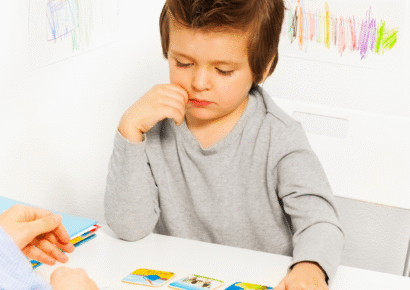Course Overview
🏆 Game Development — ADVANCED Level (192 Classes)
💡 For future creators who dream bigger, think deeper, and build real games that shine!
The Advanced Level transforms passionate learners into independent, studio-style developers ready to take on professional challenges in coding, design, and teamwork.
👨💻 Who It’s For
🎯 Ages 12+ / Grades 7–12
🔥 For students who’ve completed Intermediate or already have strong Python & coding fundamentals.
🎮 Ideal for motivated creators who want to move from classroom coding → to real game development.
🧰 Tools & Platforms
🔹 Pygame / Arcade / Godot (Intro) – 2D game development & architecture
🔹 Unity (Intro) – C# fundamentals & game engine basics (optional module)
🔹 GitHub – version control & project collaboration
🔹 Replit + Jupyter – code sharing & design documentation
🔹 Itch.io – platform for publishing and showcasing final projects
⚙️ Core Focus Areas
🧩 Software architecture & Object-Oriented Programming (OOP)
🤖 Game AI, enemy logic, and state machines
🎮 Level design, UI/UX, and player progression
💾 Team-based projects, versioning, and publishing
⚡ Performance optimization and polish
🚀 Thinking like real developers — planning, testing, and iterating
🌟 1️⃣ High-Level Course Purpose
This course takes students beyond small, solo projects into the world of multi-system, studio-style development.
They’ll learn how professional game studios plan, code, and deliver — from architecture to AI and publishing.
Students master:
-
🧱 OOP principles — classes, inheritance, components
-
🎮 Gameplay systems — inventories, levels, menus, save systems
-
💡 AI behaviors & physics — smart enemies, procedural movement
-
🎬 Project management — teamwork, debugging, testing
🧠 “The Advanced Level is where imagination meets industry.”
(Inspired by [Class Central][3] & [GDQuest][4] educational frameworks)
🚀 2️⃣ Flagship Outcomes & Capstone Projects
🎯 Team Capstone Project
Students form small development teams (2–4 members) and follow the real studio pipeline:
Design Doc → Prototype → Vertical Slice → Alpha → Beta → Launch
They build and present a fully playable, polished demo.
🌍 Published Project
With mentorship, students publish their game on itch.io or the CodingGems gallery, complete with:
🎞️ Trailer, 📄 README, 📝 Dev blog, and 🏅 Credits
💼 Portfolio Development
Each learner graduates with:
-
A professional game build
-
A clean code repository (GitHub)
-
A design document + walkthrough video
-
Public or classroom-published showcase
🧠 3️⃣ In-Depth Module Breakdown
| 🎓 Module | 🧩 Core Topics |
|---|---|
| Advanced OOP & Patterns | Classes, inheritance, composition, event-driven design, architecture |
| Gameplay Systems | Inventories, equipment, save/load, procedural content |
| Physics & Math | Vectors, collision resolution, tweening, forces |
| AI & Behavior Design | FSMs, pathfinding (A*), enemy logic, difficulty balancing |
| Graphics & Performance | Frame optimization, draw order, batching, memory awareness |
| Toolchain & Pipelines | Tilemaps, particle editors, audio tools, sprite atlases |
| Level Design & UX | Reward systems, onboarding, pacing & difficulty tuning |
| Networking (Optional) | Local multiplayer, client/server sync basics |
| Team Workflows | Git branching, merge conflicts, reviews, Kanban tracking |
| Polish & Playtesting | Feedback loops, testing sessions, telemetry intro |
| Career Readiness | How to present portfolios, join hackathons, and apply for internships |
🧑🏫 4️⃣ Classroom & Mentorship Style
🏢 Studio-Model Learning:
Students work like indie dev teams — assigning roles like lead programmer, designer, and artist.
🧩 Mentor Feedback Loops:
Regular code reviews, playtesting sessions, and actionable feedback ensure steady improvement.
🎤 Industry Guest Talks:
Occasional sessions by indie devs and university game designers — bringing inspiration from real-world creators.
🏆 Competitions & Showcases:
Encouraged participation in youth hackathons, game jams, and CodingGems Demo Days.
🎯 5️⃣ Outcomes After 192 Classes
✅ Build complete, polished games with advanced systems and gameplay logic
✅ Understand architecture, performance, and AI fundamentals
✅ Collaborate using GitHub and version control best practices
✅ Publish their own games on public platforms
✅ Graduate with a professional portfolio — ready for competitions, advanced programs, or internships
🧩 Inspired by real-world educational game dev ecosystems like Godot, Unity Learn, and Pygame communities.
📚 Additional Program Enhancements (All Levels)
🎓 Certificates & Portfolios:
Earn certificates at every level and maintain an online project portfolio.
👨👩👧 Parent Reports:
Periodic progress emails with demo links & milestones to showcase achievements.
🔍 Practice Labs:
Optional deep-dive sessions for debugging, performance tuning, and creative coding.
🎭 Cross-Disciplinary Learning:
-
🎨 Art & Design → Sprite creation, color theory
-
📐 Math → Geometry, vectors, probability
-
🧠 Language Arts → Story writing & dialogue design
🎉 Showcase Events:
Monthly demo days, mini-hackathons, and peer awards to boost confidence & teamwork.
🧭 Pathways Beyond Advanced:
Basic → Intermediate → Advanced →
✨ Specialized Tracks in AI for Games, Engine-Based Development (Godot/Unity), and Game Art & Sound.
(Guided by global frameworks such as [Code.org][1], [Pygame.org], and [GDQuest][4])
💫 Communicating Value to Parents & Students
📸 Show Student Stories:
“From idea → game in 8 weeks” — share screenshots, short captions, and real testimonials.
🧭 Show Learning Journey Visuals:
Flowcharts of the Basic → Intermediate → Advanced path with examples of student work.
📅 Transparent Course Map:
Offer week-by-week module previews for clarity and parent trust.
🎥 Demo Classes / Highlights:
Show snippets of teaching style, student interaction, and project outcomes.
💬 Comprehensive FAQs:
Cover devices, scheduling, assessments, safety, and privacy — building confidence in parents’ decisions.
(Aligned with best practices from [Coder Kids][5] and similar coding academies.)
Curriculum
- 1 Section
- 192 Lessons
- 96 Weeks
- Lession192
- 1.1Class 1
- 1.2Class 2
- 1.3Class 3
- 1.4Class 4
- 1.5Class 5
- 1.6Class 6
- 1.7Class 7
- 1.8Class 8
- 1.9Class 9
- 1.10Class 10
- 1.11Class 11
- 1.12Class 12
- 1.13Class 13
- 1.14Class 14
- 1.15Class 15
- 1.16Class 16
- 1.17Class 17
- 1.18Class 18
- 1.19Class 19
- 1.20Class 20
- 1.21Class 21
- 1.22Class 22
- 1.23Class 23
- 1.24Class 24
- 1.25Class 25
- 1.26Class 26
- 1.27Class 27
- 1.28Class 28
- 1.29Class 29
- 1.30Class 30
- 1.31Class 31
- 1.32Class 32
- 1.33Class 33
- 1.34Class 34
- 1.35Class 35
- 1.36Class 36
- 1.37Class 37
- 1.38Class 38
- 1.39Class 39
- 1.40Class 40
- 1.41Class 41
- 1.42Class 42
- 1.43Class 43
- 1.44Class 44
- 1.45Class 45
- 1.46Class 46
- 1.47Class 47
- 1.48Class 48
- 1.49Class 49CopyCopyCopy
- 1.50Class 50CopyCopyCopy
- 1.51Class 51CopyCopyCopy
- 1.52Class 52CopyCopyCopy
- 1.53Class 53CopyCopyCopy
- 1.54Class 54CopyCopyCopy
- 1.55Class 55CopyCopyCopy
- 1.56Class 56CopyCopyCopy
- 1.57Class 57CopyCopyCopy
- 1.58Class 58CopyCopyCopy
- 1.59Class 59CopyCopyCopy
- 1.60Class 60CopyCopyCopy
- 1.61Class 61CopyCopyCopy
- 1.62Class 62CopyCopyCopy
- 1.63Class 63CopyCopyCopy
- 1.64Class 64CopyCopyCopy
- 1.65Class 65CopyCopyCopy
- 1.66Class 66CopyCopyCopy
- 1.67Class 67CopyCopyCopy
- 1.68Class 68CopyCopyCopy
- 1.69Class 69CopyCopyCopy
- 1.70Class 70CopyCopyCopy
- 1.71Class 71CopyCopyCopy
- 1.72Class 72CopyCopyCopy
- 1.73Class 73CopyCopyCopy
- 1.74Class 74CopyCopyCopy
- 1.75Class 75CopyCopyCopy
- 1.76Class 76CopyCopyCopy
- 1.77Class 78CopyCopyCopy
- 1.78Class 79CopyCopyCopy
- 1.79Class 80CopyCopyCopy
- 1.80Class 81CopyCopyCopy
- 1.81Class 82CopyCopyCopy
- 1.82Class 83CopyCopyCopy
- 1.83Class 85CopyCopyCopy
- 1.84Class 86CopyCopyCopy
- 1.85Class 87CopyCopyCopy
- 1.86Class 88CopyCopyCopy
- 1.87Class 89CopyCopyCopy
- 1.88Class 90CopyCopyCopy
- 1.89Class 91CopyCopyCopy
- 1.90Class 92CopyCopyCopy
- 1.91Class 93CopyCopyCopy
- 1.92Class 94CopyCopyCopy
- 1.93Class 95CopyCopyCopy
- 1.94Class 96CopyCopyCopy
- 1.95Class 97
- 1.96Class 98
- 1.97Class 99
- 1.98Class 100
- 1.99Class 101
- 1.100Class 102
- 1.101Class 103
- 1.102Class 104
- 1.103Class 105
- 1.104Class 106
- 1.105Class 107
- 1.106Class 108
- 1.107Class 109
- 1.108Class 110
- 1.109Class 111
- 1.110Class 112
- 1.111Class 113
- 1.112Class 114
- 1.113Class 115
- 1.114Class 116
- 1.115Class 117
- 1.116Class 118
- 1.117Class 119
- 1.118Class 120
- 1.119Class 121
- 1.120Class 122
- 1.121Class 123
- 1.122Class 124
- 1.123Class 125
- 1.124Class 126
- 1.125Class 127
- 1.126Class 128
- 1.127Class 129
- 1.128Class 130
- 1.129Class 131
- 1.130Class 132
- 1.131Class 133
- 1.132Class 134
- 1.133Class 135
- 1.134Class 136
- 1.135Class 137
- 1.136Class 138
- 1.137Class 139
- 1.138Class 140
- 1.139Class 141
- 1.140Class 142
- 1.141Class 143
- 1.142Class 144
- 1.143Class 145
- 1.144Class 146
- 1.145Class 147
- 1.146Class 148
- 1.147Class 149
- 1.148Class 150
- 1.149Class 151
- 1.150Class 152
- 1.151Class 153
- 1.152Class 154
- 1.153Class 155
- 1.154Class 156
- 1.155Class 157
- 1.156Class 158
- 1.157Class 159
- 1.158Class 160
- 1.159Class 161
- 1.160Class 162
- 1.161Class 163
- 1.162Class 164
- 1.163Class 165
- 1.164Class 166
- 1.165Class 167
- 1.166Class 168
- 1.167Class 169
- 1.168Class 170
- 1.169Class 171
- 1.170Class 172
- 1.171Class 173
- 1.172Class 174
- 1.173Class 175
- 1.174Class 176
- 1.175Class 177
- 1.176Class 178
- 1.177Class 179
- 1.178Class 180
- 1.179Class 181
- 1.180Class 182
- 1.181Class 183
- 1.182Class 184
- 1.183Class 185
- 1.184Class 186
- 1.185Class 187
- 1.186Class 188
- 1.187Class 189
- 1.188Class 190
- 1.189Class 191
- 1.190Class 192
- 1.191Class 193
- 1.192Class 194


